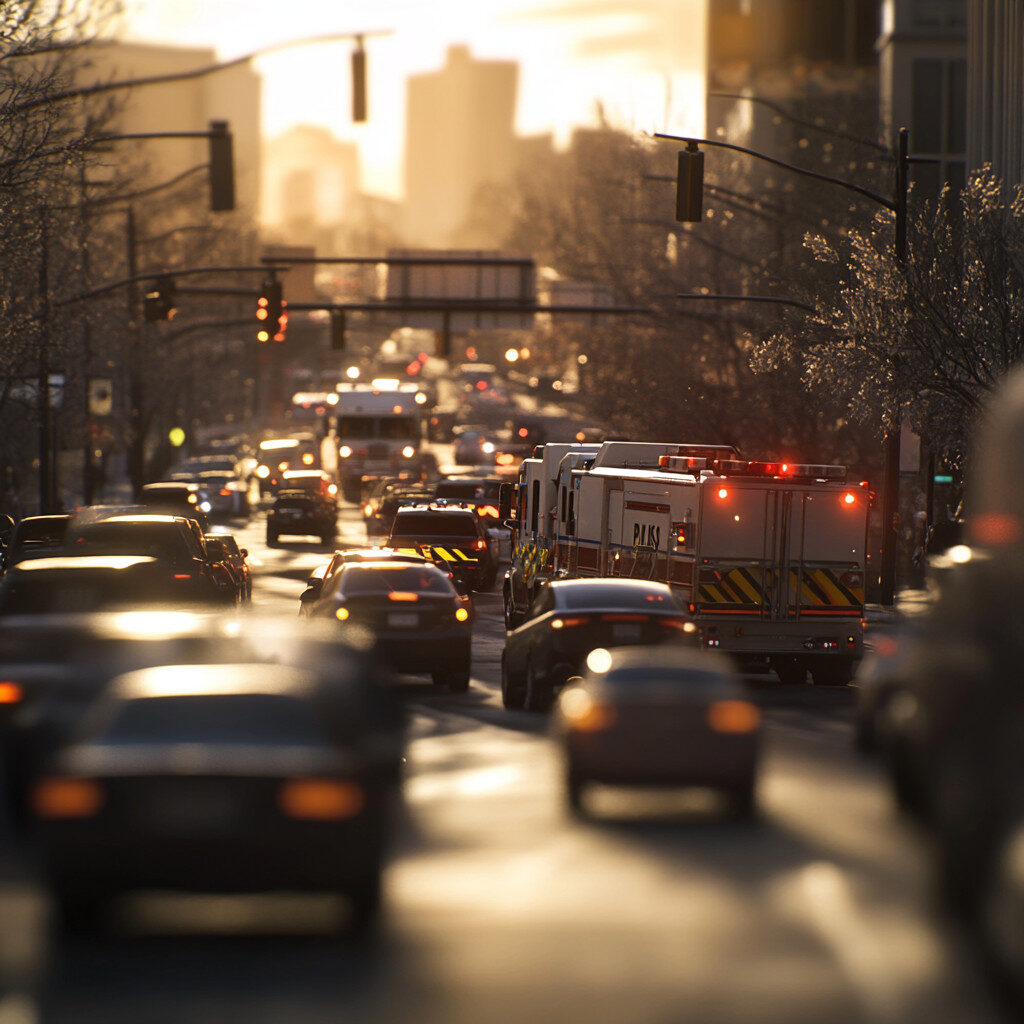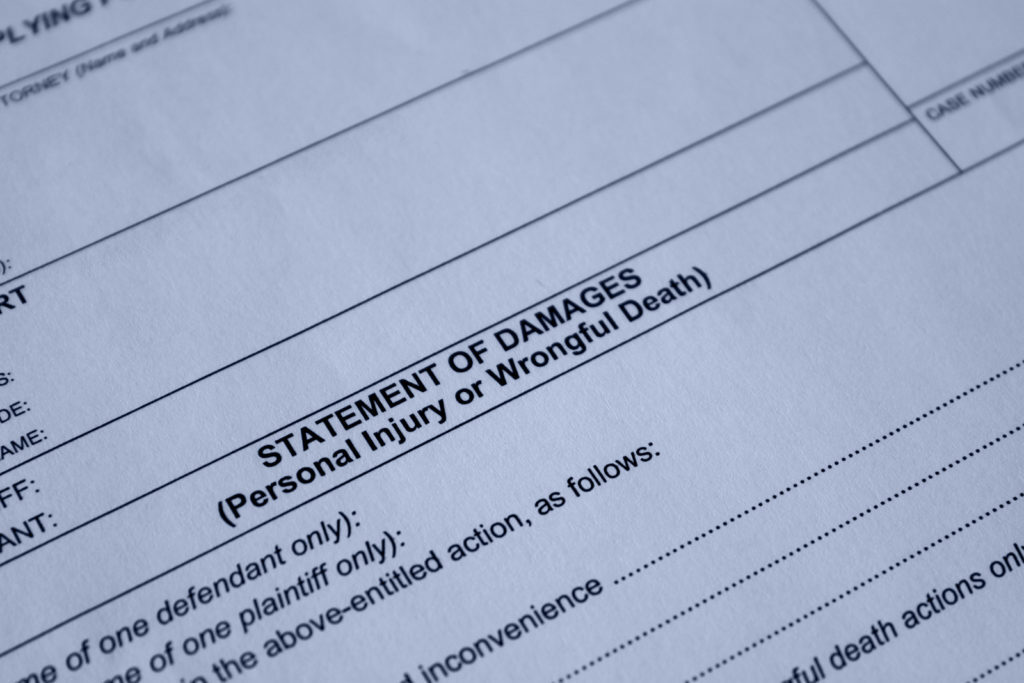Colorado Car Crash: Immediate Actions

Colorado Car Crash: Immediate Actions
The moments following a car accident can be chaotic and overwhelming. Your heart races, adrenaline surges, and amid the confusion, you need to make critical decisions that could impact your health, finances, and legal rights. Colorado roads see thousands of accidents yearly—in early 2024 alone, the Colorado Department of Transportation reported 294 traffic fatalities. When you find yourself involved in a collision, knowing exactly what steps to take can make all the difference.
At Kennedy Injury Lawyers, we understand that preparation can transform a traumatic experience into one you can navigate with confidence. This guide outlines the essential steps to take immediately after a car accident in Colorado to protect yourself, comply with state laws, and preserve your right to fair compensation.

1. Prioritize Safety First
Your immediate safety is paramount. If possible, follow these critical first steps:
– Move to safety: If your vehicle can be driven and is creating a hazard, move it to the shoulder or another safe location. Turn on your hazard lights to alert other drivers.
– Check for injuries: Quickly assess yourself and your passengers for injuries. Even minor accidents can cause serious harm that isn’t immediately apparent.
– Call 911: Colorado law requires reporting accidents involving injuries, fatalities, or significant damage. Call 911 to request police and medical assistance.
– Remain at the scene: Under Colorado law, leaving the scene of an accident, especially one involving injuries, can result in serious penalties, including a class 1 misdemeanor traffic offense or even a class 4 felony for accidents with serious injuries.
2. Exchange Information
Once safety is established, exchange the following information with all other involved drivers:
– Full names and contact information
– Insurance company names and policy numbers
– Driver’s license numbers
– License plate numbers
– Vehicle make, model, and year
– Location of the accident
Be polite but cautious in your conversations. Avoid discussing fault, making apologies, or providing statements that could later be interpreted as admitting liability. Stick to exchanging the necessary information only.
3. Document the Scene Thoroughly
In today’s digital age, your smartphone is a powerful tool for preserving evidence. Before vehicles are moved (if it’s safe to do so):
– Take photographs: Capture multiple angles of all vehicles involved, focusing on damages. Document the entire accident scene, including road conditions, weather, traffic signs, and signals.
– Record skid marks or debris: These can be crucial for determining speed and direction during the accident.
– Photograph visible injuries: Document any visible injuries you or your passengers sustained.
– Note the time, weather, and road conditions: These details may be relevant to establishing how the accident occurred.
– Identify witnesses: If possible, get contact information from anyone who witnessed the accident. Their statements could be valuable for your claim.
Digital evidence has become increasingly important in car accident claims. Photos, videos, and even data from vehicle event recorders can strengthen your case substantially by providing objective evidence of what occurred.
4. Report the Accident
Colorado law requires reporting accidents to law enforcement if they involve:
– Any injuries or fatalities
– Property damage that appears to exceed $1,000
– Hit-and-run incidents
– Suspected impaired driving
When police arrive:
– Provide factual information about what happened
– Avoid speculating about causes or admitting fault
– Ask for the officer’s name, badge number, and how to obtain a copy of the police report
– Request a case number for your records
The police report will serve as an official record of the incident and can be valuable evidence if you need to file an insurance claim or lawsuit.
5. Seek Medical Attention Promptly
One of the most critical steps after any accident is to seek medical attention, even if you don’t feel injured immediately. Many serious injuries—including whiplash, internal bleeding, concussions, and soft tissue damage—may not manifest symptoms until hours or days after the collision.
When you visit a healthcare provider:
– Describe the accident and all symptoms honestly
– Mention any pre-existing conditions that might be affected
– Follow all treatment recommendations
– Keep detailed records of all medical visits, treatments, and expenses
Prompt medical attention not only protects your health but also creates documentation connecting your injuries directly to the accident—essential for any insurance claim or legal action.
6. Notify Your Insurance Company
Report the accident to your insurance company as soon as possible, regardless of who was at fault. Most policies require prompt notification, and failing to do so could jeopardize your coverage.
When speaking with insurance representatives:
– Stick to the facts of what happened
– Don’t speculate about fault or liability
– Avoid giving recorded statements without legal counsel
– Don’t accept initial settlement offers without understanding the full extent of your damages
Remember that Colorado requires all drivers to carry minimum liability insurance of
– $25,000 for bodily injury or death to any one person
– $50,000 for bodily injury or death to all persons in any one accident
– $15,000 for property damage in any one accident
If the at-fault driver lacks adequate insurance, your own uninsured/underinsured motorist coverage (if you have it) may provide additional protection.
7. Understand Colorado’s Comparative Negligence Laws
Colorado follows a “modified comparative negligence” rule, which means your compensation may be reduced by your percentage of fault in causing the accident. If you’re found to be 50% or more responsible, you cannot recover damages at all.
This makes thorough documentation and evidence collection particularly important, as it helps establish the other driver’s greater degree of responsibility for the crash.
8. Consult with an Experienced Colorado Car Accident Attorney
Perhaps the most important step after handling immediate safety concerns is consulting with a knowledgeable car accident attorney. An attorney can:
– Evaluate the strength of your claim
– Help gather and preserve critical evidence
– Handle communications with insurance companies
– Calculate the full value of your damages, including future medical expenses and non-economic damages like pain and suffering
– Ensure you meet Colorado’s three-year statute of limitations for personal injury claims
– Negotiate for maximum compensation or represent you in court if necessary
At Kennedy Injury Lawyers, we understand that the aftermath of an accident is overwhelming. Our experienced team can guide you through each step of the process while you focus on recovery.

Why Acting Quickly Matters
Every moment after a car accident is crucial for preserving your claim. Delaying any of these steps can weaken your case and give insurance companies reasons to dispute or deny your claim. Evidence can disappear, witness memories fade, and the connection between the accident and your injuries becomes less clear with time.
Colorado’s three-year statute of limitations for car accident claims may seem generous, but building a strong case requires prompt action. The sooner you begin documenting evidence and working with legal counsel, the stronger your position will be.
Conclusion
The moments immediately following a car accident are critical. By prioritizing safety, documenting the scene, seeking medical attention, reporting the accident properly, and consulting with an experienced attorney, you can protect both your health and your legal rights.
At Kennedy Injury Lawyers, we’re committed to helping Colorado accident victims navigate these challenging times and secure the compensation they deserve. If you’ve been injured in a car accident, contact us for a free consultation to discuss your case and understand your options.
Remember: The steps you take in the minutes, hours, and days after an accident can significantly impact your ability to recover physically, emotionally, and financially. Be prepared, stay calm, and don’t hesitate to seek professional guidance when you need it most.
—
This blog post is for informational purposes only and does not constitute legal advice. For specific guidance regarding your situation, please contact Kennedy Injury Lawyers directly.





